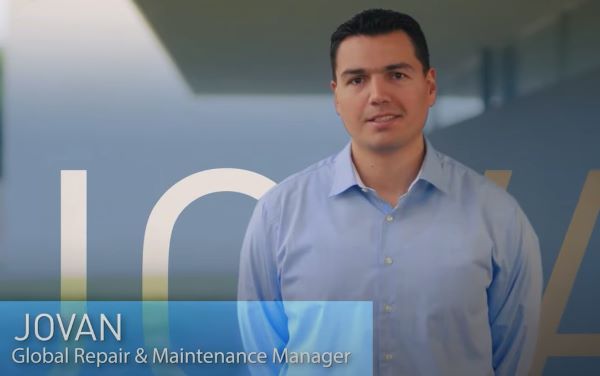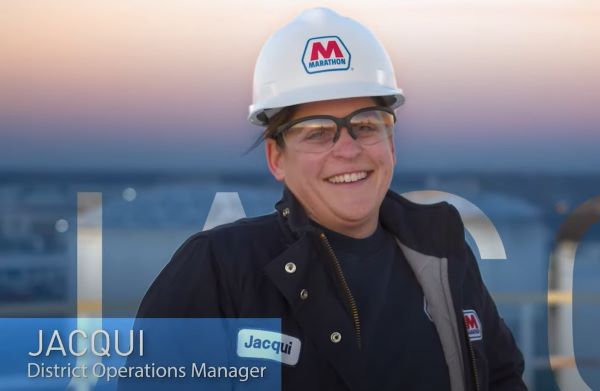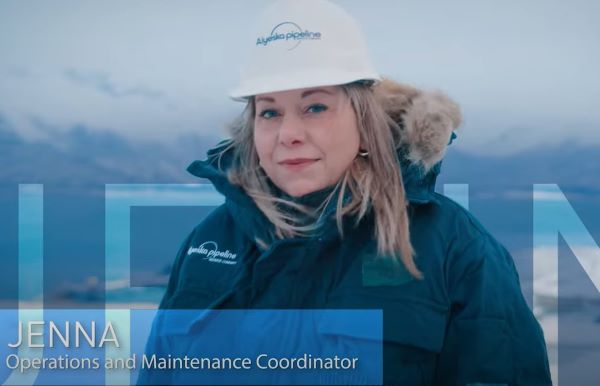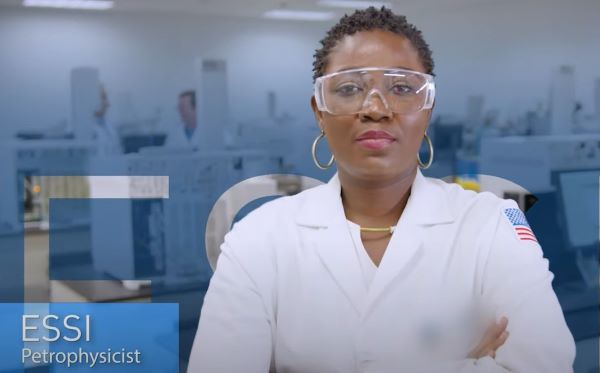SOAE Professionals Roundtable: Meeting Challenges and Having Positive Impact
Amanda Eversole
Posted February 10, 2022
It was my pleasure to host a conversation with five of the brightest up-and-coming professionals in the natural gas and oil industry during API’s recent State of American Energy – discussing the challenges that lie ahead, their careers and how they are playing important roles toward a lower-carbon future, as our industry meets the world’s growing demand for energy.
It was great to sit in with them and get a good feel for how workers from a younger generation think about what they do and the impact they have, both in their communities and across the country through the energy they bring to Americans every day. Here’s the video of our conversation:
Here are a few things that stood out to me:
High-Tech and Data-Driven
Today’s natural gas and oil industry would hardly be recognizable to people who worked in it, even a few decades ago. At API we talk about how our industry has evolved from roughneck to high-tech. While there are a number of trade and skilled labor occupations that remain critically important to our operations – including pipelayers, electricians, construction workers and drilling crews in the field who keep equipment running and maintained – so many industry careers today involve using sophisticated technologies and advanced learnings. These help us to be more scientifically precise, more efficient and productive and cleaner, from our operations to the products we deliver to families and businesses.
Jacqui Schlachter is a district operations manager in Ohio for Marathon Petroleum. She said the ability to rapidly access data to guide operational decisions has opened up so many possibilities as natural gas and oil looks to the future:
“[W]here we've been and where we are today is just so incredibly different. Now, we literally have data in our hands every second, through technology advancements and being able to then make data-driven decisions based on what is readily available. I am very excited to see what the next 10 years hold.”
Speedily acquiring critical information is the name of the game. Essi Kwabi, a petrophysicist for Apache, uses technologies to understand the properties of the rock formations where natural gas and/or oil might be present. Knowing the rock’s porosity or permeability not only helps accessing the energy but also allows the industry to work in ways that are safe, efficient and help reduce impacts. Our scientists and laboratories are developing answers for many of the key questions related to energy discovery, development and production.
Jovan Segura, a global repair and maintenance manager for oilfield services company Haliburton, talked about the ability to innovate the new technologies to tackle challenges, which is what the industry has done throughout its history. Technology – most importantly, modern hydraulic fracturing combined with horizontal drilling – maximizes natural gas and oil output from producing areas. Segura:
“[I]t's a big impact. Big changes, big improvements have been made. We're in an industry that is used to these challenges and have the right people to solve the problems … to come out ahead. That's what we do.”

Careers and Opportunities
Our diversity makes us better, stronger and more resilient, and offers life-changing careers and opportunities. By working with our members, API is driving broad industrywide and scalable workforce and supplier diversity solutions. We’re committed to putting together a workforce that looks more like America – through the creation of new job readiness training programs; by supporting STEM programs in our schools to develop future scientists, engineers, chemists and others who can find good career paths in natural gas and oil; by partnering with Historically Black Colleges and Universities and other minority-serving institutions; and by developing existing industry leaders that will help usher in the next generation of industry talent.
We know that nearly 50% of job opportunities in natural gas and oil through 2040 will be filled by women and people of color, and we’re counting on their unique perspectives and what they can bring to our industry to help us be better. The industry’s commitment to diversity is clear. Jenna Compehos, operations and maintenance coordinator for Aleyeska in Valdez, Alaska:
“I've worked for the oil and gas industry for 15 years now, and the ‘white male’ perception is an old perception. I feel like diversity is in the forefront of our minds … That gives me inspiration – knowing that I could potentially be that someday. And that's really neat.”
Essi:
“For people who think it's a white-dominated industry, I would say we need you. Come and be the diversity at the workplace, and we can always improve. So that would be my call to somebody who is thinking that that was the case – join us, join me and be the difference. And the industry is very passionate about it. They're looking for people like us.”
Safety and Trust
Trust is earned, and our industry works every day to build and maintain it with the communities that host our operations, with regulators and policymakers and with Americans generally. It’s about relationships and helping others understand how much the men and women of natural gas and oil think about optimizing and improving. Continuous improvement is built into our industry’s DNA.
This is important, because our country’s economy and the global economy run on natural gas and oil – and are projected to do so for decades to come. Energy from natural gas and oil powers modern life, and the vast array of products made from petroleum make modern life possible. Our aim is to do our work better every day, to be cleaner and protect the environment. Jacqui:
“We've got a lot of smart, innovative people that are in our industry at all levels that are coming up with new ways to detect vapors, new ways to reduce emissions on their own. Not because someone told them that they needed to, but they can see how what they do ties to their daily lives.”
Zach Conrad, a completions engineer for Coterra in Pennsylvania:
“I really think the sky is the limit. Our industry is so proactive in everything we do – whether it be how can we get more gas, how can we improve the environment – we have a lot of great minds and a lot of great people coming together to form ideas, try things, maybe bring in technology from other industries.”
Community Focused
Our roundtable participants are personally invested in their communities – where they live, pursue careers and raise their families. They work hard and they give back. Jenna’s family came to Valdez more than 100 years ago, and they’re active in a close-knit community. Jacqui volunteers with the Leukemia & Lymphoma Society’s Woman of the Year campaign. Essi sings in her church and has volunteered in efforts to stop human trafficking. Jovan is a dad who loves to bring his daughter to work on open house days. Zach grew up where he now works and now is an elected local official, the embodiment of community service. Zach:
“Everything I do in life I try to do for my community and make my community a better place. {It’s] teaching people in my local community about what we do as the oil and gas industry, how we do it, how we help protect the environment. Our industry gives back more than any industry in the country, I think. We are very involved, very active in the communities in which we work and prosper. That's what really drove me to oil and gas, and that's why I love doing what I do.”
These folks represent the emerging generation and changing face of America’ s natural gas and oil industry. They represent the many coming together as one to achieve big, important goals. In just a few minutes of conversation I heard a number of reasons to feel confident that America’s energy future is in very good hands. Here is one of my favorite comments, from Essi:
“I see it as a puzzle … trying to solve a puzzle. Every piece is important. And when you look at a big picture, it all comes together. So, we are all important. The petrophysicists, the geologists, the engineer, the geophysicists – all of us bring the story together.”
About The Author
Amanda Eversole is API’s executive vice president and chief advocacy officer, and leads efforts to integrate API’s diverse functions and develop and implement a strategic plan. Eversole came to API from JPMorgan Chase & Co., where she was managing director and head of public affairs, building the organization’s public affairs function and creating the framework for the firm’s philanthropic activities. Prior to JPMorgan Chase & Co., she served in a number of leadership positions at the U.S. Chamber of Commerce, including president of C_TEC, the Chamber Technology Engagement Center. Before joining the U.S. Chamber, she worked for RTC Relationship Marketing in business development. Eversole graduated cum laude from the College of William & Mary with a bachelor of business administration and a minor in French, and she earned an M.B.A. from the University of Pennsylvania’s Wharton School where she was a Palmer Scholar and graduated first in her class. She serves on the Board of Directors of Our Energy Policy. She lives in Virginia with her husband, their two daughters and their dog, Gus.






